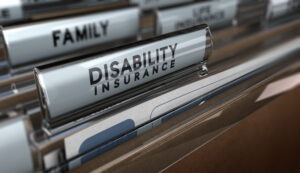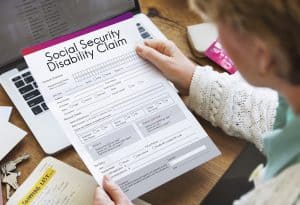
In general, a person is considered disabled by the Social Security Administration (SSA) when they can no longer earn a living because of a medical condition that has lasted – or is expected to last – a year or more. Only people with permanent or long-lasting impairments qualify for disability benefits. Terminal illnesses also qualify.
To determine if you meet the definition of disability, the SSA will look at medical evidence to prove you meet the criteria for disability.
How do You Qualify for Disability Benefits Based on an Impairment Listing?
The SSA publishes a book of potentially disabling conditions, known as the Blue Book. This book lists the criteria you must meet to qualify for benefits based on your specific medical impairment.
For example, if you are seeking disability for asthma, you would look under Section 3.03 of the Blue Book. Under this listing, you will find specific information about how to prove the severity of your asthma. To qualify, you would need to meet certain criteria involving your FEV1 test results and the number of hospitalizations your condition has necessitated in the past year.
40+ years of experience from strong, knowledgeable, compassionate attorneys.
Start A Free EvaluationThe Medical Evidence You Need to Prove Your Impairment
Depending on the nature of your illness or injury, the SSA might need to see:
- Imaging scans
- Diagnostic notes
- Clinical test results
- Blood test results
- Notes from any surgical procedures
- Information about treatments and outcomes
- Any other information your doctor can provide to help the SSA understand your diagnosis, treatment plan, and prognosis
This medical evidence plays a central role in your application, so we encourage you to discuss your need for disability with your doctor. Your doctor can help by looking over your medical records to ensure everything is complete before you file your claim.
We know you’re hurting. We can help. Free case evaluations, home and hospital visits.
Contact Us Now For HelpCan You Get Benefits If You do Not Meet an Impairment Listing?
If you do not meet a Blue Book listing, or your medical condition does not have an entry in the book, you might need to rely on your Residual Functional Capacity (RFC) to prove you have a disability.
Your RFC is an evaluation of your remaining abilities to work. It considers:
- The type of tasks you can perform
- How long you can perform them
- How often you can do them
The SSA generally evaluates your RFC in one of three ways. Either an examiner from Disability Determination Services looks at your application and medical evidence, or:
- Your doctor completes a special form to evaluate your abilities; or
- You undergo an examination with another doctor who will evaluate your abilities.
If you cannot work any job you might qualify for, the SSA should consider you medically disabled.
You need an attorney with the experience and dedication to give your case the care it deserves.
Start A Free EvaluationWhat Can You do If the SSA Denies That You Have a Disability?
Many people who apply for disability benefits do not get approved on their initial try. Instead, they need to navigate the appeals process and fight for the benefits they deserve. One of the most common reasons the SSA denies claims is because an applicant does not meet the strict definition of disabled.
At our firm, we can help you fight your denial and prove you qualify for disability. We can handle the entire appeals process for you, from requesting your appeals hearing to determining why you received a denial.
When the date of your appeals hearing arrives, we will represent you in front of an Administrative Law Judge (ALJ). We will do our best to present evidence to show you suffer from a total disability.
We can address all the legal hurdles that may be keeping you from getting a fair settlement.
Speak To An Attorney TodayThe Appeals Process
Appealing a denial of disability benefits involves a multi-step process. We can help you along each step of the way.
Requesting a Reconsideration
Within 60 days of receiving your denial of SSA disability benefits, you can file for reconsideration. A different department in the same agency that handled your original claim will review it to see if there were any mistakes that led to a denial of benefits.
Requesting a Hearing with an Administrative Law Judge
If the original agency that denied benefits upholds their decision, you can request a hearing with an Administrative Law Judge.
They can review your claim to determine if the SSA upheld the laws for disability benefits. They may send the case back to the original agency or make a decision of their own.
Request a Review by the Appeals Council
If an ALJ determines that your denial of benefits is lawful, you can move to the next phase. You can request a review with the Appeals Council. It may return your case to the ALJ who oversaw it or issue a decision of its own.
File for Federal Court Review
Your final option in fighting a denial of SSA disability benefits is to file for a Federal Court review. We can help you prepare for this process.
How Can You get Help Proving Your Disability to the SSA?
At Berger and Green, we can go over your application and assist you with applying for disability benefits. If the SSA denied your claim but you feel certain you should qualify, our legal team can help you navigate the appeals process and fight for your benefits.
If your disability occurred as the result of someone else’s negligence, you could qualify for damages from the at-fault party. Our personal injury team can help. Call our office today at (412) 661-1400 to get started.








